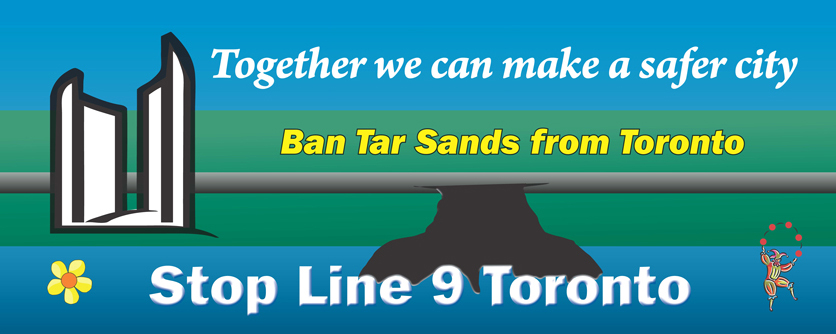The Transportation of Unconventional Crude Oil through Toronto City Limits
Context/Background
Enbridge Pipelines Inc. has received approval from the National Energy Board for permission to reverse the flow of Line 9 in order to ship Diluted Bitumen (DilBit) from Alberta to Montreal crossing the City of Toronto near Finch Avenue (see attached motion MM28.22, of November 27, 2012).
DilBit is one of the most toxic and corrosive substances created by the Alberta Tar Sands (see attached “Tar Sands Pipelines Safety Risks” by the Natural Resources Defense Council, 2011). "DilBit contains benzene, polycyclic aromatic hydrocarbons, and n-hexane, toxins that can affect the human central nervous systems, … DilBit also contains vanadium, nickel, arsenic, and other heavy metals in significantly larger quantities than occur in conventional crude. These heavy metals have a variety of toxic effects, are not biodegradable, and can accumulate in the environment to become health hazards to wildlife and people."
The proposed path of the DilBit across Toronto near Finch Avenue is a threat to both people and property (see attached “Going in Reverse: The Tar Sands Threat to Central Canada and New England” by the Natural Resources Defense Council, 2012). This report documents recent pipeline spills and their consequences.
Line 9 crosses numerous watercourses in the City, with the danger of a spill directly threatening Toronto’s water supply in addition to any other damages (see attached “TRSPA_Executive_Summary_Jan2012” by the CTC Source Protection Committee, as required by the Ontario Clean Water Act, 2006)
In addition to Line 9, the oil industry is also using rail to transport DilBit as well as Bakken Crude (another Unconventional Crude Oil). The rail route is through the heart of Toronto and is the same route taken by the train that exploded in Lac Mégantic in 2013. These products are for export only.
The Transportation Safety Board has categorized these Unconventional Crudes as Class 3, PG II products (both flammable and explosive).
Motion
That City Council use any and all available legislative and legal means to immediately prohibit the shipment of Unconventional Crude through Toronto city limits as a threat to the health and safety of its citizens. |
